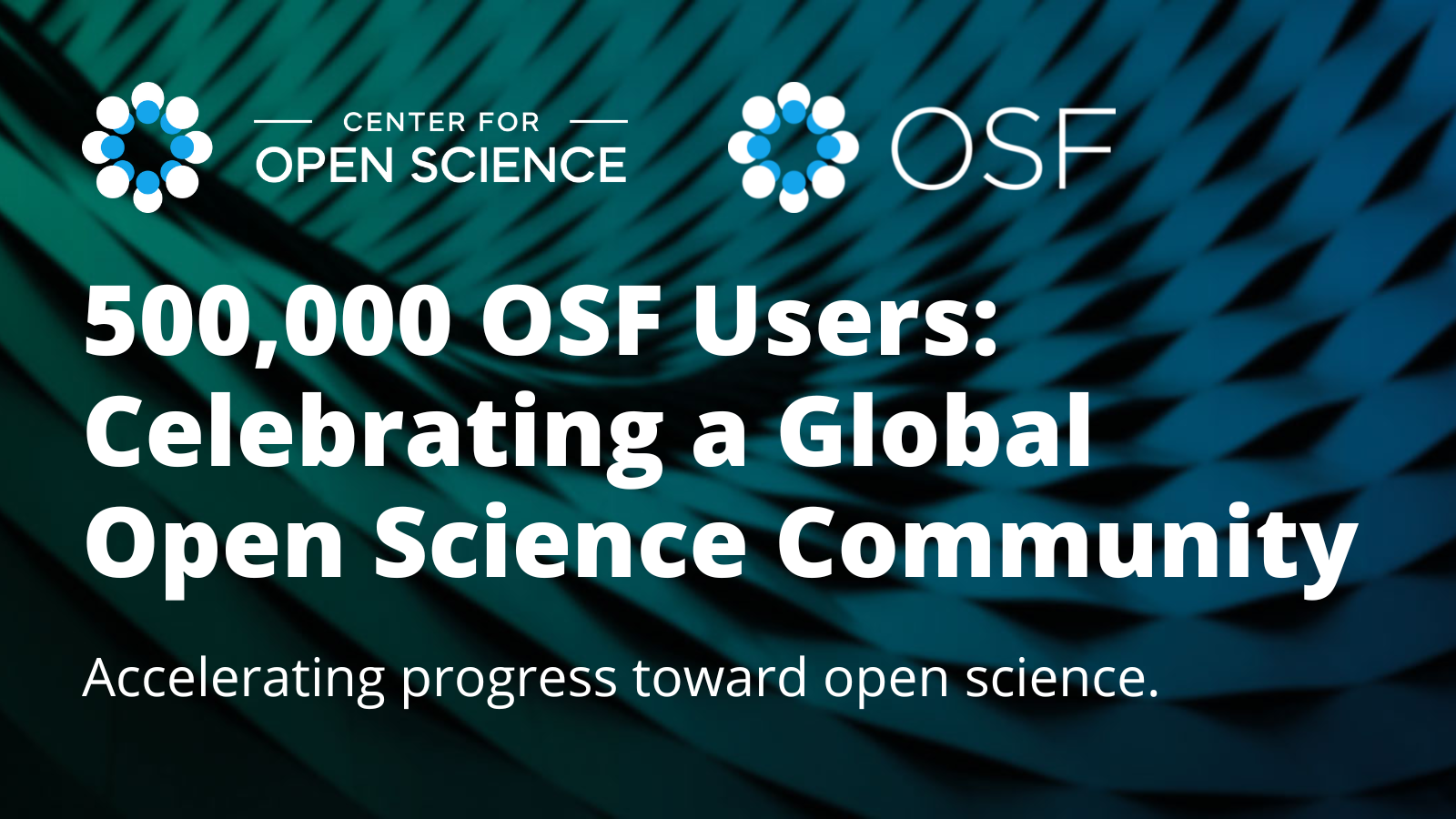
Ten years ago, open science was an unfamiliar concept and the only practitioners were innovators seeking to do science in a more rigorous, transparent, and inclusive way. These innovators engaged research communities across the world around open research practices, and now we celebrate 500,000 registered users on the Open Science Framework (OSF), one of many indicators that open science is now mainstream.
OSF has experienced non-linear growth every year since it launched in November 2012. In early 2013, OSF was a self-funded lab project with just 371 users. Since then, OSF gained critical support from private funders such as Arnold Ventures to become a robust public goods infrastructure to enable open science behaviors. This kickstarted a culture change process enabling grassroots communities to advance new norms by increasing the visibility of open science and offering peer-to-peer training on how to get started.
Watch the video to hear from OSF users.
It took five years to reach the first 100,000 users, and two more years to reach 200,000. With stakeholders introducing new incentives and policies, that adoption continued to accelerate, with just one more year to reach 400,000, and now, just seven months later, half a million registered users. And it’s not just the producers of research adopting openness and transparency, the number of users consuming content from OSF has grown similarly. Already in 2022, more than 13 million people have visited OSF to review content shared by registered users. In 2021, OSF registered users posted more than 2.6M files, translating to 7,985 files daily. Research consumers are accessing and downloading content at high rates, with over 10M unique visitors in 2021 downloading more than 51M files.
Over the past nine years, we’ve developed and improved OSF to meet researchers’ needs for collaborating and sharing their work. First by making it possible to do open practices across the research lifecycle through research collaboration and management features, integrations with common tools research use in their workflows, preregistration workflows to improve research rigor and quality, and community tools like preprint and project sharing services. Next, improving the user experience and workflow designs with improvements to file management, discovery, and collaboration workflows.
Looking ahead, our product development goals are oriented around improving the functionality and workflows the OSF community relies on to conduct open, transparent and rigorous research. Here’s what you can look forward to:
OSF is just one of many services that support open science. The primary driver of growth is the research community itself. We are grateful for the many researchers and advocates encouraging changes in the reward systems that shape the research culture. And, we are grateful for all of the supporters and stakeholder partners that have helped us advance our mission to increase openness, integrity, and reproducibility of research including funders that have supported OSF’s development.
Changing a culture is hard. It is only through the collective and coordinated action of the diverse community of stakeholders that we can accelerate progress toward open science. Thank you for your contribution to improving the research culture.
Learn more about getting started on the OSF, participate in user experience research, and help cultivate awareness by becoming a COS Ambassador!

6218 Georgia Avenue NW, Suite #1, Unit 3189
Washington, DC 20011
Email: contact@cos.io

Unless otherwise noted, this site is licensed under a Creative Commons Attribution 4.0 International (CC BY 4.0) License.
Responsible stewards of your support
COS has earned top recognition from Charity Navigator and Candid (formerly GuideStar) for our financial transparency and accountability to our mission. COS and the OSF were also awarded SOC2 accreditation in 2023 after an independent assessment of our security and procedures by the American Institute of CPAs (AICPA).
We invite all of our sponsors, partners, and members of the community to learn more about how our organization operates, our impact, our financial performance, and our nonprofit status.